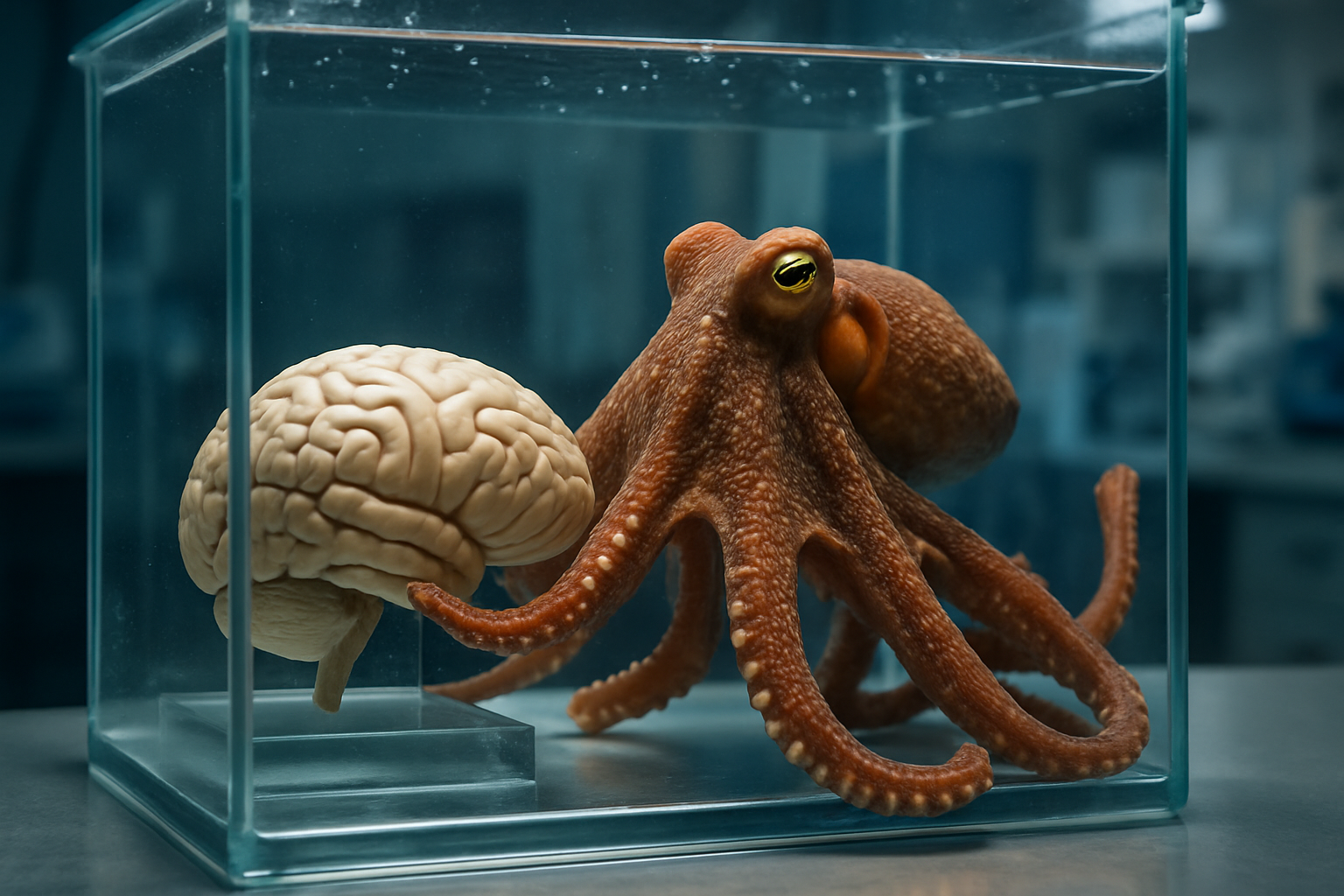Title: Decoding the Enigmatic World of Cephalopod Cognition
In the depths of our oceans, a fascinating realm of intelligence awaits discovery. Cephalopods, including octopuses, squids, and cuttlefish, have long captivated scientists and animal enthusiasts alike with their remarkable cognitive abilities. This article delves into the cutting-edge research unveiling the complex mental processes of these extraordinary creatures, challenging our understanding of animal intelligence and consciousness.

Cephalopod brains are organized into distinct lobes, each responsible for specific functions such as learning, memory, and problem-solving. The vertical lobe, in particular, is crucial for long-term memory formation and has been likened to the hippocampus in vertebrates. This sophisticated neural architecture allows cephalopods to display complex behaviors and adaptability that far surpass those of other invertebrates.
Problem-Solving Prowess and Tool Use
One of the most striking aspects of cephalopod cognition is their problem-solving ability. Octopuses, in particular, have demonstrated an exceptional capacity to navigate mazes, open jars, and even use tools. In laboratory settings, researchers have observed octopuses using coconut shells as portable shelters and wielding rocks as weapons against potential predators.
These behaviors indicate a level of planning and foresight previously thought to be exclusive to vertebrates. The ability to manipulate objects and adapt them for specific purposes suggests a sophisticated understanding of cause and effect, as well as a capacity for creative thinking.
Memory and Learning: Challenging Conventional Wisdom
Contrary to the popular notion that short lifespans limit cognitive development, cephalopods exhibit remarkable learning and memory capabilities. Studies have shown that octopuses can remember the solutions to puzzles for several months, even after encountering them only once. This long-term memory retention is particularly impressive given their average lifespan of just 3-5 years.
Cephalopods also display rapid learning abilities, quickly adapting to new environments and situations. They can learn through observation, a trait previously thought to be limited to higher vertebrates. This capacity for social learning has significant implications for our understanding of cephalopod intelligence and the evolution of cognition in the animal kingdom.
Emotional Intelligence and Personality
Recent research has begun to uncover evidence of emotional intelligence and distinct personalities in cephalopods. Octopuses, for instance, have been observed exhibiting behaviors that suggest they experience a range of emotions, including curiosity, playfulness, and even what appears to be boredom when not mentally stimulated.
Studies have also revealed individual differences in cephalopod behavior, with some individuals showing bolder or more cautious tendencies. These findings challenge our preconceptions about invertebrate cognition and raise intriguing questions about the nature of consciousness and self-awareness in these animals.
Implications for Animal Welfare and Conservation
The growing body of evidence supporting cephalopod intelligence has significant implications for animal welfare and conservation efforts. As we recognize the cognitive sophistication of these creatures, there is an increasing push for stronger protections and more humane treatment in research and aquaculture settings.
In the European Union, cephalopods are now included in animal welfare legislation typically reserved for vertebrates, acknowledging their capacity for suffering and the need for ethical consideration. This shift in perspective is driving changes in how we interact with and protect these remarkable animals in both captivity and their natural habitats.
The Future of Cephalopod Cognition Research
As technology advances, new avenues for studying cephalopod cognition are emerging. Non-invasive imaging techniques, such as functional MRI adapted for aquatic environments, promise to provide unprecedented insights into cephalopod brain function. These tools may allow researchers to observe neural activity in real-time as cephalopods engage in complex tasks, further illuminating the intricacies of their cognitive processes.
Additionally, the field of comparative cognition is expanding, with researchers drawing parallels between cephalopod intelligence and that of mammals and birds. This cross-species approach may shed light on the evolutionary pathways that lead to advanced cognition and potentially reveal universal principles of animal intelligence.
The study of cephalopod cognition is a rapidly evolving field that continues to challenge our understanding of animal intelligence. As we unravel the mysteries of these enigmatic creatures, we not only gain insights into the diversity of minds in the animal kingdom but also confront profound questions about the nature of consciousness itself. The cognitive abilities of cephalopods serve as a reminder of the extraordinary complexity of life on our planet and the importance of preserving the ecosystems that nurture such remarkable intelligence.






